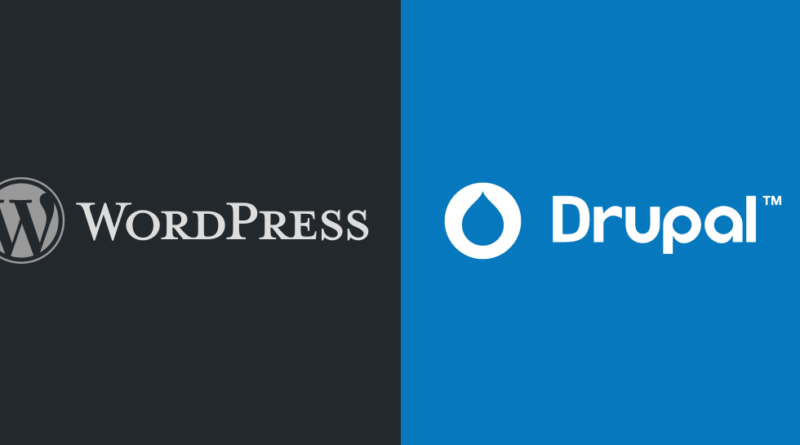Is Drupal better than WordPress?
Drupal and WordPress are two of the most popular Content Management Systems (CMS). They are both free-to-use, open-source, user-friendly solutions that offer a vast library of plugins and modules to increase site functionality.
Choosing the right CMS platform for your business depends on your short-term and long-term goals. With that in mind, let’s examine the critical differences between Drupal and WordPress to determine which one is better for your business.
Security
Security is a crucial factor for any website. The more complex your website is, the more protection you’ll need. Drupal provides enterprise-level security and offers in-depth security reports. WordPress, by contrast, has been historically vulnerable to hackers and other attacks. Its plugins, which make the platform so powerful, also open the system to potential attacks. However, there are hosting platforms that make WordPress less susceptible. Drupal’s security also benefits from partnering with a suitable host. The best Drupal host is one that can help mitigate the risk of server vulnerabilities.
Ease of Use
WordPress is a popular choice among novice website developers because it’s easy to understand. It’s possible to set a blog up within minutes using WordPress’s drag-and-drop functionality and WYSIWYG editor. As a result, you only need basic computer knowledge to get started. But if you want more customization or if you want to build your eCommerce store then it’s vital to take a help from WordPress development agency.
Drupal is also easy to use, but it can be hard to learn how to use it. This platform requires more technical knowledge than WordPress. However, this means you can produce more advanced sites. That being said, Drupal 8 has made the platform more comfortable to use for non-developers as it includes site builders and content authors.
Range of Capabilities
There’s no denying that Drupal is more complicated than WordPress. However, it’s due to this complexity that Drupal has a more advanced range of capabilities. For instance, Drupal has more features than WordPress, but you need to know how to use them. These features include taxonomies, content types, blocks, views, and more. As a result, users will experience a learning curve with Drupal, but they will ultimately have more functionality for their site.
Furthermore, Drupal is better equipped to handle multiple page templates and content types. Additionally, Drupal’s user permissions are more advanced than WordPress. Drupal allows you to have site admins, content editors, individualized access to private content, and more. As a result, Drupal can support multiple site stakeholders.
Adaptability
People often choose to work with WordPress because it offers a wide variety of free and paid themes, as well as an extensive library of plugins to get a website started. Drupal also has starter themes, but it was mainly designed for custom development. Drupal’s version of plugins is called modules. These modules are free and offer many of the same functionality types that are available with WordPress plugins. However, you will usually need a developer to handle module installation and updates, whereas plugins are manageable without a developer. Nonetheless, WordPress doesn’t have the same ability as Drupal to handle large volumes of content. Drupal is able to support thousands of pages and thousands of users. Furthermore, updates in Drupal 8 have improved page performance, including the caching feature, which allows for faster page load. Therefore, Drupal is the better option for handling complicated projects.
Cost
Both Drupal and WordPress are free to download and install. However, there are other costs associated with both platforms. For instance, hiring outside development help for Drupal tends to be more expensive than WordPress developers because there are fewer of them, and they are harder to come by. Furthermore, you don’t need to be a developer to get started with WordPress, so your startup cost can be lower right off the bat. However, once you’ve created the shell of your Drupal site and included the necessary functionality, scaling it and customizing it won’t cost you too many additional funds. WordPress, on the other hand, requires some additional investment for scaling and customization.
Conclusion
The question you should be asking is not, is Drupal better than WordPress, but rather, What am I trying to accomplish? The right platform for your business will need to have the security, functionality, and flexibility to match your ambitions. It also needs to be budget-friendly. If your website needs are complex and require robust functionality, Drupal is the platform. It may require you to hire a developer, but WordPress is no match in terms of security and range of capabilities. WordPress is only cost-effective because you can do most of the stuff yourself. However, if you want to scale your WordPress site, this will require an additional investment.




